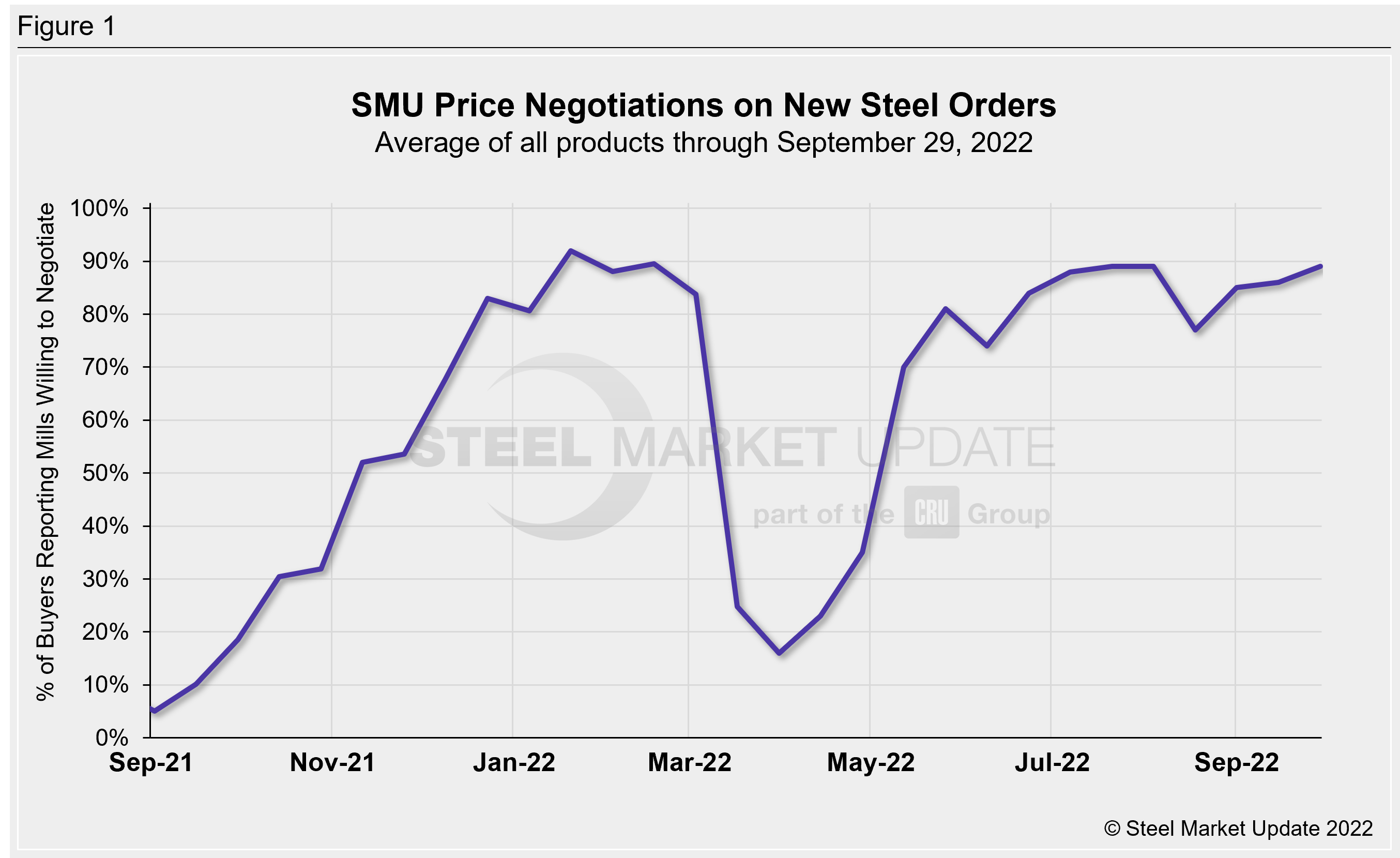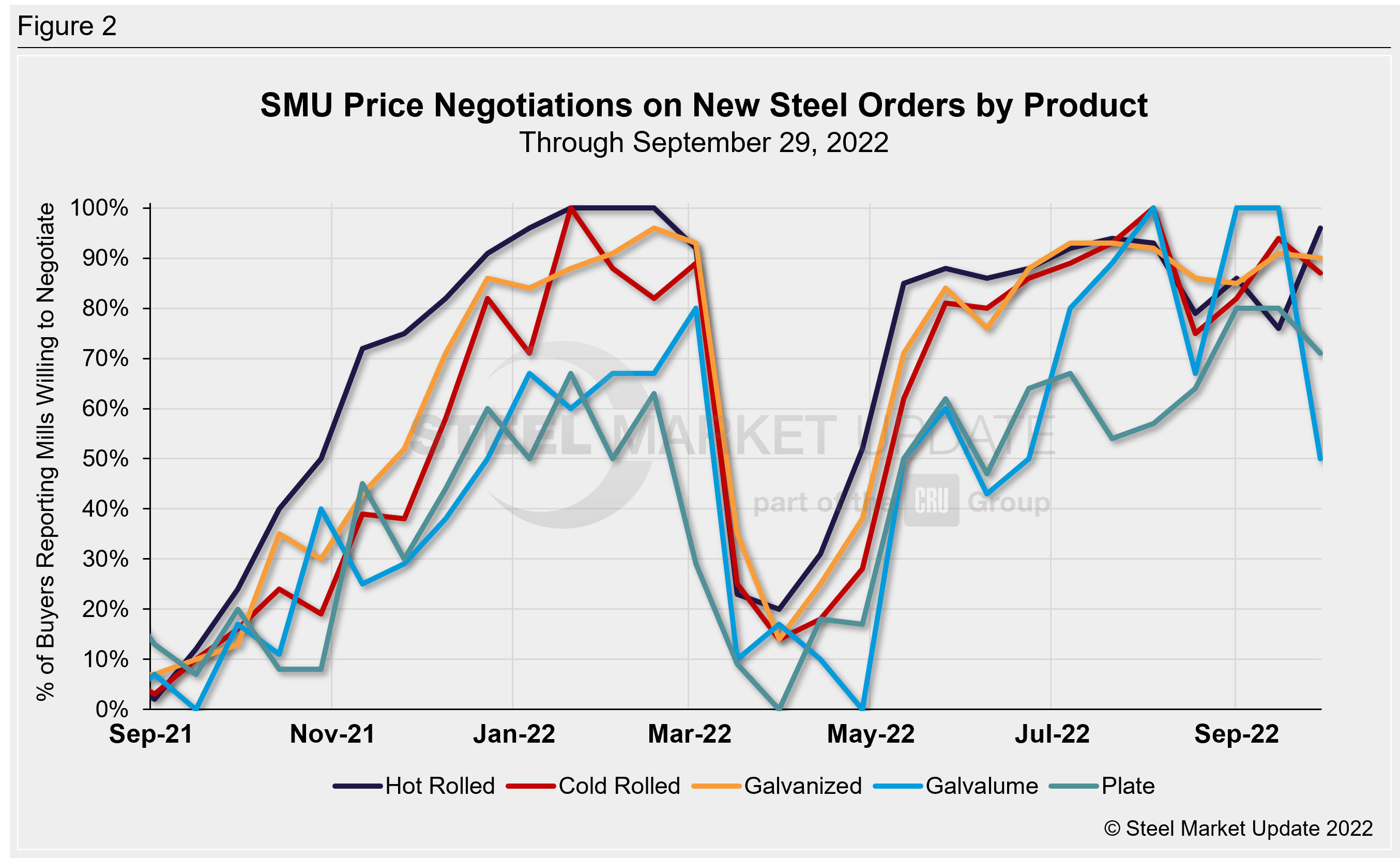Market Data

September 29, 2022
Steel Mill Price Negotiations: It's Still a Buyer's Market
Written by Brett Linton
The power position in price negotiations between steel mills and steel purchasers has seen a complete turn around in the past six months, transitioning from a seller’s market in March and April to a strong buyer’s market today. According to our latest steel market survey, the percentage of buyers reporting that mills are willing to talk price to secure an order grew yet again this week. A high willingness to negotiate has been evident in each of our market checks since May.
Every two weeks, Steel Market Update asks hundreds of steel buyers the question: Are you finding domestic mills are willing to negotiate spot pricing on new orders? On average this week, 89% of steel buyers reported that mills were willing to negotiate lower prices on new orders. As shown in Figure 1, the average negotiation rate has steadily grown in each of our surveys since mid-August. Negotiation rates are now back in line with the previous high levels seen in July and early August. Recall we saw negotiation rates as low as 16% in March.

Figure 2 below shows negotiation rates broken down by product for the past year. 96% of hot rolled buyers surveyed are now responding that mills are willing to negotiate lower prices, the higest rate seen since February. This is up from 76% two weeks prior and up from 86% one month ago. Negotiation rates were in the 92–94% range in the July and early-August surveys.
For cold rolled, 87% of buyers polled reported that mills were willing to bargain, down from 94% two weeks ago but up from 82% one month prior. 90% of galvanized buyers reported that mill prices are negotiable, relatively stable compared to rates seen in recent months.
Galvalume negotiation rates tend to be more volatile due to the smaller market size. 50% of respondents reported that mills are negotiable on new orders this week, down from a rate of 100% in our two previous surveys.
Negotiations have been slightly less common in the plate market, but have been strengthening since mid-July. 71% of buyers reported a willingness to negotiate this week, down from 80% both two weeks ago and one month ago. Plate negotiation rates had been between 54–67% for nearly two months prior to September. Recall we saw plate negotiation rates between 0–18% in March and April.
SMU’s Price Momentum Indicator was adjusted from Lower to Neutral on Aug. 9 and will remain there until the market establishes a clear direction.

Note: SMU surveys active steel buyers every other week to gauge the willingness of their steel suppliers to negotiate pricing. The results reflect current steel demand and changing spot pricing trends. SMU provides our members with a number of ways to interact with current and historical data. To see an interactive history of our Steel Mill Negotiations data, visit our website here.
By Brett Linton, Brett@SteelMarketUpdate.com







